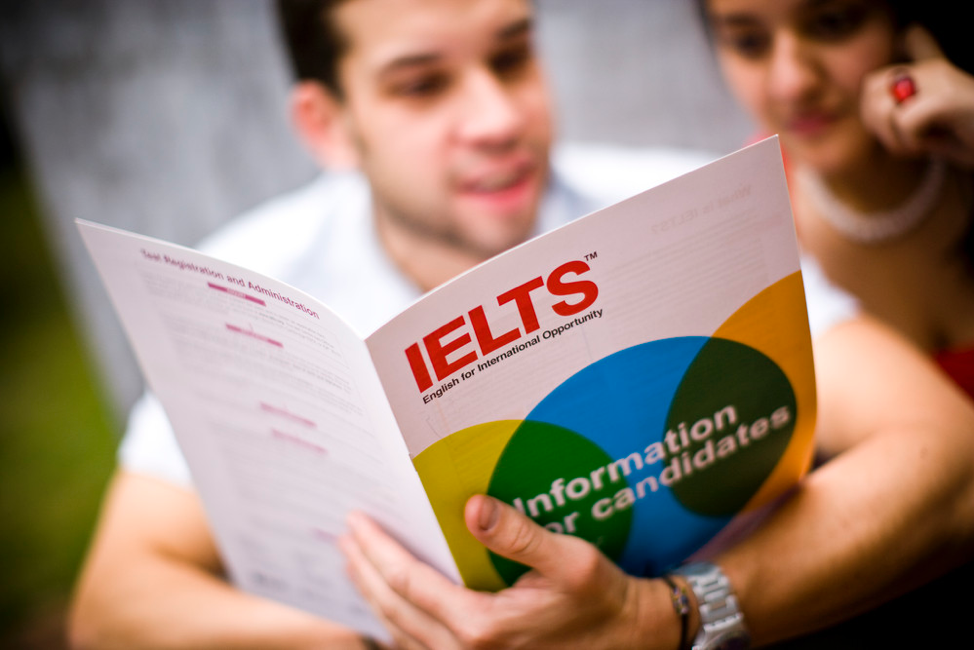Contents
IELTS (International English Language Testing System) is a widely recognized and accepted English language proficiency test for non-native speakers who are seeking admission to universities or immigration to English-speaking countries. It consists of four sections, namely Reading, Writing, Listening, and Speaking, and assesses the test-takers’ ability to communicate in English in academic and general contexts. The score bands range from 0 to 9, with 9 being the highest achievable score. In this blog, we will discuss the technical aspects of IELTS and how to sophisticatedly and typically gain better bands in IELTS academics.
Understanding the IELTS Exam Format:
The first step to gain better bands in IELTS academics is to understand the exam format. The IELTS exam has two versions: IELTS Academic and IELTS General Training. The IELTS Academic is for those who want to study at the undergraduate or postgraduate level, whereas the IELTS General Training is for those who are seeking employment or immigration to English-speaking countries. Both versions have the same test format, but the Reading and Writing sections are different. Therefore, it is essential to understand the exam format before preparing for it.
Developing Reading Skills:
The Reading section of the IELTS exam assesses the test-taker’s ability to read and comprehend academic texts. It consists of three passages, and the test-taker has 60 minutes to complete the section. To gain better bands in IELTS academics, it is crucial to develop reading skills. This can be done by reading academic texts, newspapers, and magazines regularly. It is also important to practice skimming and scanning techniques to save time during the exam. Furthermore, it is essential to understand the question types and the format of the answers.

Enhancing Writing Skills:
The Writing section of the IELTS exam assesses the test-taker’s ability to write academic essays and reports. It consists of two tasks: Task 1 and Task 2. Task 1 requires the test-taker to describe a graph, chart, or diagram, while Task 2 requires the test-taker to write an essay on a given topic. To gain better bands in IELTS academics, it is crucial to enhance writing skills. This can be done by practicing different types of essays and reports, such as argumentative, discursive, and descriptive essays. It is also important to focus on the structure, grammar, and vocabulary of the essay. Additionally, it is essential to manage time effectively during the exam.
Listening Skills:
The Listening section of the IELTS exam assesses the test-taker’s ability to understand spoken English in academic and general contexts. It consists of four sections, and the test-taker has 30 minutes to complete the section. To gain better bands in IELTS academics, it is crucial to develop listening skills. This can be done by listening to English news, podcasts, and lectures. It is also important to practice note-taking skills to save time during the exam. Furthermore, it is essential to understand the question types and the format of the answers.
Speaking Skills:
The Speaking section of the IELTS exam assesses the test-taker’s ability to communicate in spoken English in academic and general contexts. It consists of three parts, and the test-taker has 11-14 minutes to complete the section. To gain better bands in IELTS academics, it is crucial to enhance speaking skills. This can be done by practicing speaking English with friends, family, or language partners. It is also important to focus on the pronunciation, fluency, and accuracy of the spoken English. Additionally, it is essential to manage time effectively during the exam.

Improving Vocabulary:
Vocabulary plays a crucial role in the IELTS exam. It is important to have a wide range of vocabulary to express ideas effectively and accurately. To gain better bands in IELTS academics, it is crucial to improve vocabulary. This can be done by reading academic texts, newspapers, and magazines regularly. It is also important to learn new words and phrases and use them in different contexts. Additionally, it is essential to understand the meaning, usage, and spelling of the words.
Grammar and Sentence Structure:
The IELTS exam assesses the test-taker’s ability to use grammar and sentence structure accurately and effectively. Therefore, it is important to have a good understanding of grammar and sentence structure to gain better bands in IELTS academics. This can be done by studying grammar rules, practicing sentence construction, and correcting common errors. It is also important to use a variety of sentence structures, such as simple, compound, and complex sentences, to show a range of grammatical knowledge.
Time Management:
Time management is a crucial aspect of the IELTS exam. The test-taker has a limited amount of time to complete each section, and it is essential to manage time effectively to avoid running out of time or rushing through the exam. To gain better bands in IELTS academics, it is crucial to practice time management. This can be done by taking timed practice tests, setting realistic goals, and dividing the time for each section according to its weightage.
Test-Taking Strategies:
Test-taking strategies are essential to gain better bands in IELTS academics. These strategies can help the test-taker to approach the exam systematically and efficiently. Some of the test-taking strategies include understanding the instructions, skimming and scanning techniques, eliminating wrong answer choices, and guessing intelligently. It is also important to stay calm and focused during the exam.
Assessing the Best IELTS Tutor
Choosing the right IELTS tutor is an important decision for anyone who wants to prepare for the exam. An experienced and qualified tutor can provide guidance and support to help the test-taker achieve their desired score. However, with so many options available, it can be challenging to assess which IELTS tutor is the best fit. In this article, we will discuss some key factors to consider when assessing the best IELTS tutor.

Qualifications and Experience:
One of the most important factors to consider when assessing an IELTS tutor is their qualifications and experience. A good tutor should have a strong understanding of the IELTS exam and its requirements. They should have experience teaching IELTS, and ideally, they should have a teaching qualification, such as a TEFL or TESOL certification. It is also important to consider the tutor’s academic qualifications and whether they have relevant experience in the field that the test-taker wants to study.
Teaching Style:
The teaching style of the IELTS tutor is another important factor to consider. Different tutors have different approaches to teaching, and it is important to find a tutor whose teaching style is a good fit for the test-taker’s learning style. Some tutors may prefer a more structured approach with a focus on grammar and vocabulary, while others may prefer a more relaxed, conversation-based approach. It is important to discuss the teaching style with the tutor before committing to lessons.
Availability and Flexibility:
The availability and flexibility of the IELTS tutor are important considerations. The test-taker should look for a tutor who can accommodate their schedule and provide lessons at a time that is convenient for them. Additionally, the tutor should be flexible in their approach to teaching and be able to adapt to the needs of the test-taker.
Feedback and Support:
A good IELTS tutor should provide regular feedback and support to the test-taker. This can include feedback on practice tests, advice on how to improve, and guidance on areas that need more focus. The tutor should also be available to answer questions and provide support outside of the lesson time.
Cost:
The cost of the IELTS tutor is another important factor to consider. Tutors may charge by the hour or offer packages of lessons. The test-taker should consider their budget and how much they are willing to spend on IELTS preparation. It is important to note that a more experienced and qualified tutor may charge more than a less experienced tutor.
Reputation and Reviews:
The reputation and reviews of the IELTS tutor are important considerations. The test-taker should do some research and look for reviews or recommendations from other students who have worked with the tutor. They should also consider the tutor’s reputation in the industry and whether they have a track record of success in helping students achieve their desired score.

Technology and Resources:
Finally, the technology and resources used by the IELTS tutor are important considerations. The tutor should have access to up-to-date resources and materials that are specifically designed for IELTS preparation. Additionally, the tutor should be comfortable using technology to provide online lessons and support.
Conclusion:
Assessing the best IELTS tutor requires careful consideration of several factors, including qualifications and experience, teaching style, availability and flexibility, feedback and support, cost, reputation and reviews, and technology and resources. By taking the time to assess these factors, the test-taker can find an experienced and qualified tutor who can provide guidance and support to help them achieve their desired score on the IELTS exam.
The IELTS exam assesses the test-taker’s ability to communicate in English in academic and general contexts. To gain better bands in IELTS academics, it is crucial to understand the exam format, develop reading and writing skills, enhance listening and speaking skills, improve vocabulary, focus on grammar and sentence structure, practice time management, and use test-taking strategies. By following these technical aspects of the IELTS exam, the test-taker can sophisticatedly and typically gain better bands in IELTS academics.


Leave a Reply